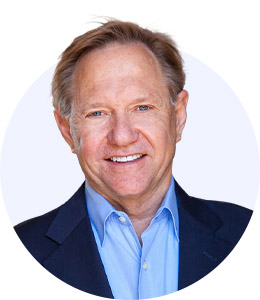An organization has excellent facilities, technology, best-practice knowledge, and a passionate workforce—yet is not achieving organizational goals. And yes, senior leadership is solid. So what is the issue? In cases like this, I find that a good place to look is experience.
What percentage of new people can a department or organization have until it impacts performance? There’s no single answer; it’s relevant to the department, the role, and the new person who fills it. It’s also important to factor in whether employees are experienced in the role yet new to the organization or new in both role and experience.
Josh Sitton was an offensive lineman for the Green Bay Packers. He was recently named to the Green Bay Packers Hall of Fame. If one looks at the 2010 Packers team that won Super Bowl XLV, it was a total team effort. Look closely and you will see they had an outstanding offensive line. In football, an offensive line is five players: two tackles, two guards, and a center. Just one new person causes adjustments. If the person is brand new to professional football, the adjustment will take longer than if an experienced player joins the team (yet even then there is an adjustment).
I feel we may be underestimating the impact of having so many people in an organization who are new to the organization, new to their role, or both. Ask any nurse manager today about the impact of new nursing grads. They will say they are so happy to have these passionate nurses. Then ask how prepared they are when they come out of nursing school. Due to the pandemic, many new nurses have not had the hands-on experience pre-Covid nurses received. This does not mean they are not helpful and will not be great nurses. What it does mean is that they need time to develop.
The same is true in management. Many organizations are struggling right now, from user experience to financially to overall operationally. Yes, there may be a facility, technology, or process issue—but before you spend time and dollars in these areas, analyze leader experience. From working in healthcare, I know it is the norm today to have at least 25 percent of people in management new to leadership. There is often another group made up of people who are not new to leadership but are in a new role.
In looking at sports, it is very common to find that when there are new players, the game plan is simplified. We need to be just as mindful of experience levels in other industries. No matter how good a player is, it will take time for them to take hold of their responsibilities and get up to speed. It will take time for the teamwork to gel. We need to allow new people to start slowly, get some wins, and build up their confidence. The formula I like is less=always=consistency=better outcomes.
In working with an organization on communication, two key issues were chosen to focus on. One was in the area of organizational trust, and the other was around comfort in sharing concerns. Utilizing the data, the organization leaders tended to fall into three categories in those questions: underperforming, performing, and high performance. Then the next question is the experience level of each leader. Often, due to adjusting to so many new demands, new leaders will need time to acquire the needed communication skills. It is not a will issue; it is a skill issue. Given the right amount of skill development, support, and time, the person will do fine.
If the underperforming leader is experienced, then a deeper dive is needed. Do they have the will? Do they have the capabilities to achieve the needed outcomes? Will additional skill development work? If not, is there another spot in which they can be a solid performer? Do they need to leave the organization?
There are many items to study in assessing leadership talent. My suggestion is making experience one of those items.
A few tips:
- Take a deep dive into experience. Assess all leaders with experience.
- Look at the interdepartmental impact. I have heard more concerns about how departments are interacting than I have in the past. Even if one department is fine, the fact that they need another department to support them means the experience of the other department is critical.
- Teamwork is another item impacted by experience level. People can be stressed with the number of new employees they need to interact with. While they understand the newness, it is still a challenge. Take time to discuss the situation with experienced staff and how they feel the new person can be helped.
- Yes, people want mentors, but be careful they are not (Thank you, Katie Boston Leary, for this term!) Mentors need to be developed. Being skilled in a task does not automatically mean the person is a good teacher. Take time to develop mentors.
- Be patient. It takes time for people to gain the experience. Discuss the timeline with the person on how long it will take to have the experience needed to meet expectations. Let them know you understand it won’t happen overnight.
- We have a tool we are recommending called OSR. It focuses on these three areas: What is the needed outcome (O)? What skills (S) are needed to achieve the outcome? What resources (R) are to be used to build the skill set?
In summary, while the urge may be to speed things up, buy that new tool, or add more technology, first check the experience gauge. You might find this is why performance is not quite where you want it to be. If this is the case, and if you implement the tips listed above, just give it some time and you may find that the issues correct themselves.







